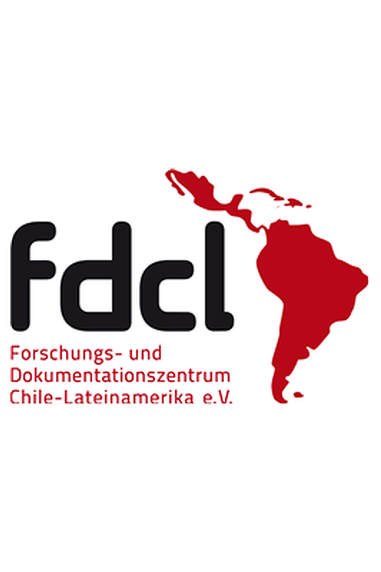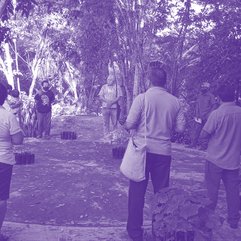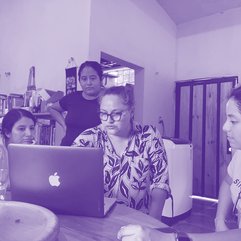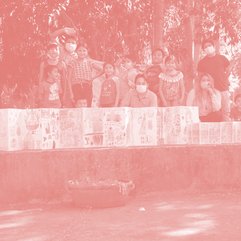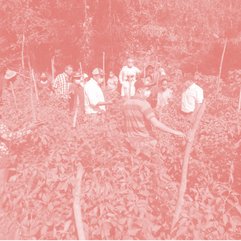Agroecology, Resistance and Collectivity
The Struggle for Land and Territory - Experiences of the Landless Movement MST, Brazil
18.30-21.00
Save the Date
for adults/no registration necessary
in German/in Portuguese

Discussion and information event with Felipe Campelo, Landless Movement MST | Brazil
Event language: Portuguese with translation (German)
After the pandemic, economic and political crisis, the challenges for Brazil are still enormous. Although sufficient food is produced (Brazil is the world's 3rd largest exporter of commodities), the country has been back on the UN World Food Program's hunger map since 2018. Agrarian reform has not progressed for decades because the powerful agribusiness industry opposes it, and even under the new government of Lula da Silva, the issues of a socially just distribution of land remain unresolved.
Yet there are numerous forward-looking examples of socio-ecological transformation whose focus, in addition to collective forms of organization for food sovereignty, is on the need to overcome anthropocentric logic, climate justice and decolonial practices.
One of them is the Movement of Farm Workers without Land (Movimento dos Trabalhadores sem Terra - MST), which has been active for 40 years. In projects shaped by collective experience processes with a focus on agroecology and increasingly also sustainable agroforestry, the movement wants to counteract deforestation and the exploitation of people and land by agribusiness and the devastating political inaction of recent years. In addition, the movement has an active role in civil society organization and sets important impulses through different emancipatory approaches to empowerment in the areas of education, culture, feminism, LGBTQI+, etc., which in the meantime also resonates in many parts of the population, but continues to meet with opposition in others.
We talk about the experience of the movement, perspectives for agroecological and social change, and the current political conjuncture with Felipe Campelo, coordinator of the Educational Center for Agroecology and Agroforestry 'Egídio Brunetto' from the state of Bahia/Brazil, which is marked by many land conflict.
Felipe Campelo lives in the agrarian reform pre-settlement 'Bela Manhã' in Teixeira de Freitas. He is an agronomist with a degree in rural sociology and is doing his PhD on the analysis of productive agrarian settlements in the south of the state of Bahia.
He currently works as policy and educational coordinator of the Educational Center for Agroecology and Agroforestry 'Egídio Brunetto' in the extreme south of Bahia.
Educational Center Escola Popular Egídio Brunetto was founded in 2013 in the middle of a conflict zone over territories between a transnational cellulose company and the movement of the landless in the south of the state of Bahia. The school sees itself not only as a space of resistance to the model dominated by agribusiness, but also as an alternative for building knowledge in favor of nature. Agroecology and agroforestry are the cornerstones of the educational center and surrounding settlements, contributing to the restoration of the Atlantic Forest, local biodiversity and the strengthening of agroecological production pathways in the region.
Organized by:
treemedia and maiz brasil in cooperation with SPORE, FDCL and Friends of MST.
As part of the Speakers Tour: maiz brasil - Decolonial Voices and Practices for Food Sovereignty and Climate Justice (treemedia e.V. 2023) For more information visit: www.treemedia.org/maizbrasil
With the kind support of:
NSB, LEZ, BMZ, Stiftung Umverteilen, Brot für die Welt.



